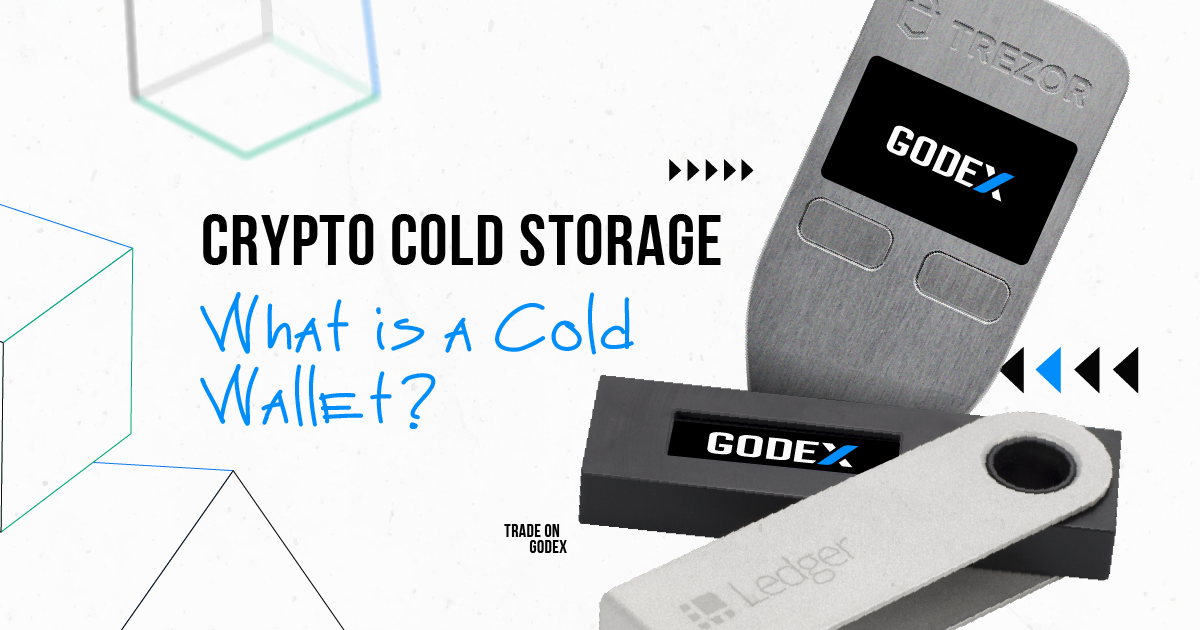Table of Contents
In the era of rapid crypto space development, there are many tools for storing and managing digital assets. All options differ in functionality, reliability and usability.
However, most often when choosing a storage for a cryptocurrency, security and reliability are key. This is due to the fact that if your digital assets are lost as a result of a hacker attack or other incidents, you will in no way be able to get them back.
Decentralization or lack of control by the government and the central bank has its pros and cons, and in the case of a loss of funds, the lack of such regulation is likely to be a disadvantage. All responsibility for the safety of your funds rests on your shoulders, and therefore it is important to understand the ways of storing coins and tokens.
A crypto wallet is associated with the owner’s public and private keys. The private key is a unique string of alphanumeric characters required to access the user’s crypto account. Basically, it’s like a combination that can open a safe, and anyone who knows it can do it. While the private key must be hidden from everyone, public keys are designed to be shared with others. So, when a transaction is carried out between a seller and a buyer, they exchange public keys so that the funds reach the desired addressee. The sender or the buyer specifies the address of their wallet (public key) so that the blockchain can verify that it has enough funds to complete the transaction. Once the payment has been delivered to the address, the merchant or recipient can only access the funds through their private key. And since anyone with private keys has access to crypto assets that are tied to this key, it is very important to keep them in a secure wallet.
There are two types of private key storage: hot and cold. When stored hot, private keys are vulnerable to a variety of cyber dangers, as the wallets in which they are located are connected to the Internet.
In contrast, cold storage keeps the private key from contacting the server, even when the device is connected to the network. Therefore, an attacker will not gain access to it.
What is a Cold Wallet?
A cold wallet is a cryptocurrency storage that does not have a permanent connection to the Internet. In this case, we are talking about the local storage of files with private keys that provide access to your digital assets.
Unlike hot wallets, which allow transactions to be made at any time, a cold wallet, due to its nature (offline state), is not intended for frequent use in asset transfer operations. For the same reason, it becomes impossible for cybercriminals to gain remote access to them.
Is Cold Wallet the Best Way to Store Cryptocurrency?
If cold wallets were the best place to store crypto assets, there would be no other options, right? Cold wallets have undeniable advantages over other types of wallets, but in some points they are inferior to them. Ultimately, it all depends on your needs and how you are going to use your cryptocurrency.
The benefits of the storage can be summarized as follows:
- Cold wallets provide maximum cryptocurrency safety.
- Unused wallets installed on devices disconnected from the Internet provide almost absolute reliability.
However, cold wallets also have drawbacks. The main ones are:
- The lower, in comparison with hot wallets, the speed of operations. This is due to the special attitude to wallet security.
- Poor usability, especially for inexperienced users. The reasons also lie in the area of security.
- Greater traffic consumption during work. The thickest options are becoming the most demanding.
- Hardware cold wallets cost money.
When Should You Use a Cold Wallet?
If you have invested in a large amount of cryptocurrency and do not intend to resort to your funds often, using cold storage for this will be the only right solution.
The best choice for experienced users, provided with time and finances, would be a combination of different types of cold and hot wallets.
- Hot ones are good for frequent transactions and withdrawals. The multi-currency hot wallets make transactions even more convenient and faster.
- Cold wallets “store” currency more reliably, especially when disconnected from the network. This makes them an ideal option for long-term investments of rather large sums.
Cold Wallet Options
- Hardware wallets.
In this option, the program and keys are installed on a special electronic device compatible with computer technology. Outwardly, it looks like a USB flash drive with a button, sometimes with a screen.
The best cold wallets for cryptocurrency, if we evaluate them from a security point of view, are hardware ones, on specialized devices. Even if it falls into the wrong hands, such a wallet will not “open”, since you can start working with it only after entering an additional password.
Another difference between hardware devices and all other cold wallets is the price. Most devices cost between $100 and $400.
- Desktop wallets.
In theory, any desktop wallet that supports file backup when the network is offline can be used to create a cold wallet similar.
For example, the developers of popular wallets Electrum and Exodus claim support for the cold storage function. But in fact, it turns out that we are only talking about the local storage of private keys in encrypted form using user passwords. And since the main functions of such applications are used mainly on devices connected to the network, the most important condition of a cold wallet is not met the need to be offline.
Desktop wallets can be:
- thick;
- thin.
The difference between the two is that:
Before starting work, the thick wallet downloads the entire blockchain array of the cryptocurrency with which it is supposed to work. After completing the operations, the data is uploaded back to the network and the system is updated.
Thin wallets do not require downloading hundreds of gigabytes of copied data, the blockchain remains on the Internet, and information is exchanged online.
According to experts, the security of thick cold wallets is higher.
- Paper Wallets
The paper wallet is the most affordable cold wallet. It is freely available, contains private and public keys, which, following the instructions, must be printed.
With this storage method, your private keys are generated offline, so you don’t need to worry about security. However, this method is less convenient than using a hardware wallet, and the paper on which the keys are stored can be easily damaged.
There are different paper wallet clients for different cryptocurrencies. You can create unlimited paper wallets.
- Storing Cryptocurrency in USB Drive
One of the easiest ways to cold store your precious coins is by using a USB drive. This storage method makes it easy to export and store private keys.
But ease of use comes at a price, which means that anyone can easily access your keys and thus your coins. In addition, there are frequent hardware failures in using USB drives.
Advantages and Disadvantages of Cold Storage Options
While all the crypto cold storage options presented have a sufficient level of security, which guarantees the safety of your coins, they have a number of advantages and disadvantages. Here’s what to look for when choosing a cold storage wallet.
- Hardware wallet
Pros: secure, durable, can be restored, can’t be copied, multicurrency.
Cons: quite expensive, less user-friendly for newbies.
- Desktop wallet
Pros: user-friendly, quite secure.
Cons: can be hacked (when it’s online), canburn or be damaged, can’t be restored, require a lot of storage space (for thick wallets).
- Paper wallet
Pros: easy to carry, free, can be used as a gift card.
Cons: can easily be damaged (torn, rot or burn), can be copied, can’t be restored.
- USB Drive
Pros: user-friendly and available.
Cons: can’t be restored, can burn or be damaged.
Cold Storage Wallet to Use
So far, neither users nor experts have an unequivocal opinion about which cold wallet is most suitable for use. It would be difficult even theoretically, since the requirements for cold wallets are too different. Let’s take a look at the most used ranking products.
Most used hardware wallets:
- Ledger
- Trezor
- KeepKey
Single currency desktop cold crypto wallets:
- Bitcoin Core is a proven Bitcoin wallet for a long time;
- MyEtherWallet is a similar product for Ethereum crypto.
Desktop multicurrency cold wallets:
- Exodus
- Coinomi
There is also a mobile, but cold option:
- Coinomi is a thin, multi-currency wallet.
In terms of security, it is best to choose a hardware wallet as the cold storage for crypto.
The usage process looks like this:
- a hardware wallet connects to a computer;
- the computer enters the system, is authorized using the keys;
- the owner of the wallet conducts operations with funds;
- disconnects the hardware wallet from the computer until the next session.
Conclusion
Based on the above, the following conclusion can be drawn:
- Cold wallets are suitable for those users who need long-term storage of large amounts of cryptocurrency.
- Hot wallets are intended for users who perform various actions with their crypto assets.
Start a Cryptocurrency exchange
Try our crypto exchange platform
Disclaimer: Please keep in mind that the content of this article is not financial or investing advice. The information provided is the author’s opinion only and should not be considered as direct recommendations for trading or investment. Any article reader or website visitor should consider multiple viewpoints and become familiar with all local regulations before cryptocurrency investment. We do not make any warranties about reliability and accuracy of this information.
 Peter Moore
Peter Moore 
Read more
Ripple (XRP) price has been widely discussed by the cryptocurrency community since it has gained public interest in 2017, even though it was founded by Chris Larsen and Jed McCaleb years before. The platform offers innovative blockchain solutions for the banking sector and has the potential to disrupt the whole finance industry. In recent years, […]
In this article we will talk about Ripple (XRP) and its price prediction. What is Ripple (XRP) Ripple is a San Francisco-based startup that was launched in 2012 by Ripple Labs as a global network both for cross-currency and gross payments. Ripple history began in 2004 with the discussions around the digital coin in the […]
You may well think that an article dedicated to a Tether price prediction or the Tether price in general is a little bit strange — it is a stablecoin after all. However, the price of Tether does fluctuate significantly, although it is nowhere near as volatile as non-stablecoin cryptos. This means that staying up to […]
In the article we share our vision at Zcash cryptocurrency main features and add several price predictions. As cryptocurrencies gain global acceptance and decentralisation slowly enters our lives, privacy becomes the main concern when talking about blockchain adoption. It is no secret that distributed ledger is by far the most secure and transparent technology ever […]
Chiliz coin (CHZ) offers a compelling opportunity for traders interested in the intersection of blockchain technology and sports. By enabling fans to influence team decisions through the Socios app, Chiliz directly monetizes fan engagement and connects with major sports teams like Juventus and Paris Saint-Germain. These partnerships not only enhance the platform’s visibility but also […]
The exponential growth of Bitcoin Satoshi Vision (BSV) against the general bear trend on the cryptocurrency market in autumn 2019 has impressed the community. Due to the increasing market capitalization, the newly emerged altcoin was ranked 5th on CoinMarketCap and managed to maintain its high position at the beginning of 2020. In the article we […]